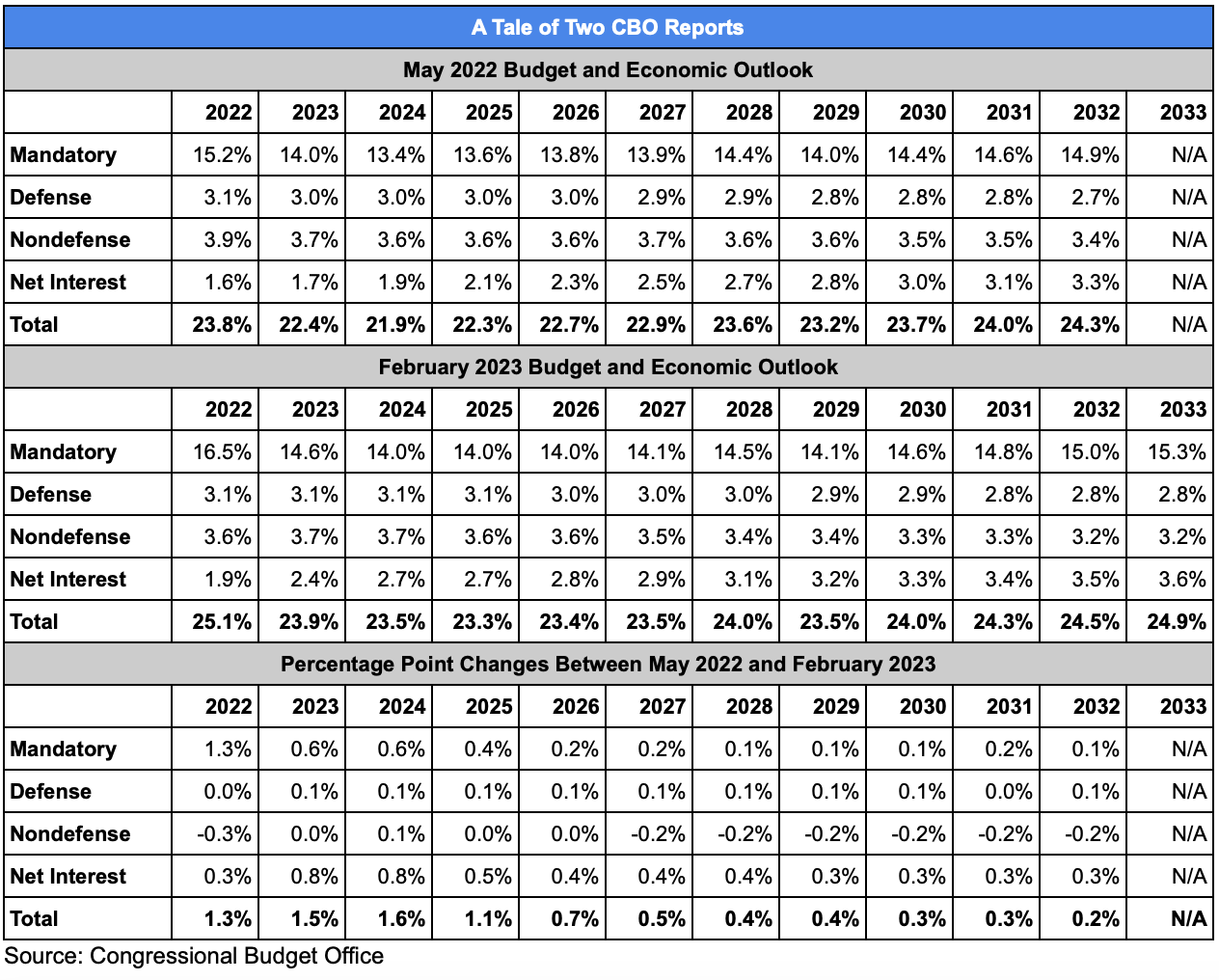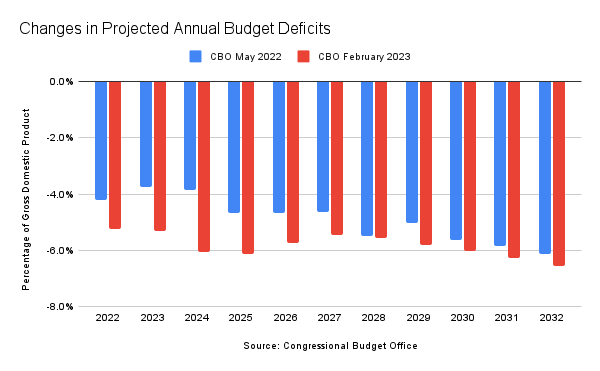Biden's Claims of Cutting the Deficit Are Really Misleading
Spending, Deficits, and Debt Are Growing
President Biden has claimed on several occasions that his administration has cut the deficit. In his State of the Union address, Biden said, In the last two years, my administration cut the deficit by more than $1.7 trillion–the largest deficit reduction in American history.”
Of course, there’s missing context here. Spending had soared to 31.3 percent and 30.5 percent of gross domestic product (GDP) as Congress responded to the COVID-19 pandemic. That spending has tapered off substantially since then and mostly returned to “normal,” whatever that is. The point is that the year-over-year deficit was going to decline. That’s not really an accomplishment. “We’re not spending insane amounts of money now! Give us a round of applause!” Hooray, I guess?
Biden further said, “Under the previous administration, America’s deficit went up four years in a row. Because of those record deficits, no president added more to the national debt in any four years than my predecessor.”
I’ve already spent some time talking about the spending spree under the previous administration, but I don’t know that I’ve ever detailed it. I probably should, but I think those details are better for a longer, more thoughtful post. I will say that Biden is right, but I also think that you have to look at the previous administration’s spending record in FY 2020 and FY 2021 through the lens of COVID-19. Again, context matters. That said, there’s no question that the previous administration’s record on spending was horrendous in FY 2018 and FY 2019. The increases in spending that we saw made it harder to respond to a challenge like COVID-19.
Back to Biden. We have to take a look at two reports from the Congressional Budget Office to really analyze his claim about deficits. The first is from May 2022 and the other is from February 2023. Both are part of the same regular report, The Budget and Economic Outlook, that the CBO publishes. Now, I could go back further than May 2022. Maybe I will at some point, but these two reports are less than a year apart and still show substantial changes to the budgetary outlook.
The tables below show the May 2022 projections compared with the more recent February 2023 projections. (The figures for FY 2022 are actual numbers. FY 2033 wasn’t included in the May 2022 report because it fell outside the ten-year window.)
Now, Congress has passed significant legislation since the May 2022 report, including the Chips and Science Act, the Inflation Reduction Act, and the FY 2023 omnibus. Economic projections have also changed in the short-term, with weaker growth expected now than in May 2022, before it exceeds the May 2022 projections in 2024 and after.
But even with the higher than previously projected annual economic growth, budget deficits are projected to be larger now than in the May 2022 report. Keep in mind that the individual tax changes in the Tax Cuts and Jobs Act will expire at the end of calendar year 2025, so even with more revenues coming into the Treasury, deficits will grow. But this was always going to happen because of the growth of entitlement programs like Medicare and Social Security. Higher than project interest payments are also contributing to spending growth.
And much like the deficit picture has worsened, the share of the debt held by the public projected to be higher in the latest report than in the previous report through the ten-year window, as well as the 30-year window, when it will reach almost 190 percent of GDP. In FY 2053, the share of the debt held by the public is projected reach nearly 195 percent of GDP.
Biden’s claims about cutting the deficit are misleading. I have zero faith that Republicans, with their sharp turn toward economic populism, are serious about addressing these challenges, but Biden is gaslighting Americans about where we are. We should be concerned about where we’re headed. Yet, we’re treating this as the next generation’s problem rather than getting ahead of it now because the pursuit of political power, and holding on to that power, take precedent over doing what’s best for the country.






